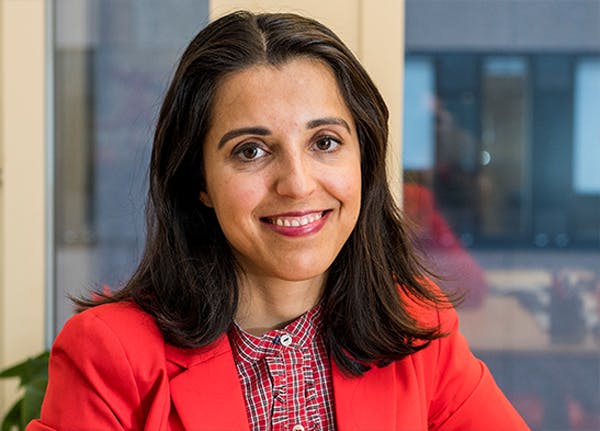‘Plastic is a societal problem’
2019-03-30
Three quick questions to Aylin Farid, social policy adviser and procurement lawyer at Avfall Sverige, about how we can be better at what we do with our waste.

How good are Swedes at separating household waste and recycling material?
– Swedes are generally good at separating. As a result, we can recover material and energy from virtually all household waste. Only 0.5 per cent is sent to refuse sites, or what are commonly known as rubbish tips. But like in many other countries, plastic is a problem: both recycling and reusing need to increase considerably. The same also goes for textiles. Awareness of the problems has increased, with a great awareness now among all actors, such as consumers, municipalities, politicians, research institutes, manufacturers, and numerous partnerships have been set up to reduce the amounts and increase plastic and textile reuse and recycling.
By 2045 Sweden will have net-zero greenhouse gas emissions. An important part of this is energy recovery from waste will be fossil-free. How will that be done?
– That is a good question but a difficult one. Energy recovery from waste is the form of treatment for various kinds of waste that cannot be reused or from which material cannot be recovered or that contains hazardous and infectious substances we want to phase out of the cycle, for example single-use plastic materials and blood plasma from hospitals, hazardous waste, such as industry and household chemicals. We can through waste incineration destroy the waste we no longer want in the cycle but also generate electricity and heating for homes and industry. Energy recovery from waste meets the heating requirements of 1,250,000 flats and the electricity requirements of 680,000 flats. Sweden has some of the world’s best energy recovery plants, thanks to which we are climbing up the waste ladder, but there is room for improvement.
– A source of fossil emissions from energy recovery is plastic packaging in residual waste, which is then incinerated. Swedish households need to get better at separating their waste, and manufacturers should improve the incentive for doing so. We must bear in mind that manufacturers also have a responsibility to design packaging that is easy to recycle and reuse instead of merely disposable.
You are against a waste incineration tax as a means of achieving resource-efficient and non-toxic waste management. Why is that?
– We believe, as do many others, that if the aim is to achieve efficient and non-toxic waste management, then the means of control must be introduced earlier in the chain, already at the packaging and product design stage in order to create the conditions for improved and increased recycling and reusing. We have had the proposed tax before, and it was abolished because it did not produce the intended effect. The tax has been widely criticised and much debated by industries and companies as well as the government’s own agencies. Responsibility must, from the outset, be in the right hands. We believe that for us to achieve fossil-free waste incineration, those placing goods and products containing fossil material on the Swedish market must be levied with a climate change charge (carbon charge), the size of which must cover the cost of carbon offsetting the plastic ‘discharge’. If the company takes back products for reuse and material recovery, the charge will be reduced.
Aylin Farid was interviewed by Maria Eklöf, senior consultant and associate partner at New Republic. ‘Three Quick Questions…’ is a series of interviews conducted by New Republic.